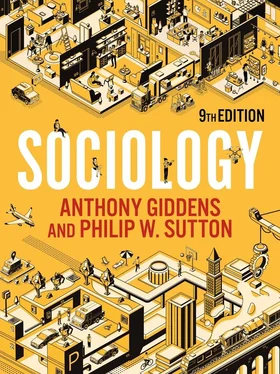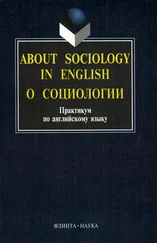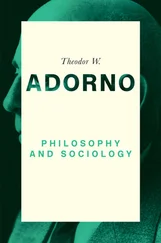Perhaps the most significant consequence of environmental justice groups is that they offer the possibility of linking environmental politics across the developed and developing societies. An important example was the protest against the impact of the multinational oil company Shell on the environment of the indigenous Ogoni people in Nigeria. The campaign of the Movement for the Survival of the Ogoni People (formed in 1990) and the international support it garnered is just one example of the potentially unifying concept of environmental justice. Attempts by the Nigerian government to put down the resistance movement involved torture, ransacking of villages and, in 1995, the execution of nine members of the movement’s leadership, including the writer Ken Saro-Wiwa, in the face of international protest (Watts 1997).
Such events reinforce the argument that the relatively powerless bear the brunt of environmental pollution. Environmental justice campaigns demonstrate the potential to link social inequalities and poverty to environmental issues, promising to make environmentalism more than just a nature-defence movement. Recently the concept of a ‘social licence’ has been used to describe the dynamic relations between companies and communities (Soyka 2012: ch. 4). For instance, communities and citizens’ groups may informally ‘grant’ an ongoing social licence to a company seeking to begin mining operations, promising new jobs and economic development. But that approval or ‘licence’ may be withdrawn if unnecessary environmental damage is caused, perceptions change and business operations are deemed illegitimate. Awareness of the need for a social licence to operate can empower local communities, as it has to be earned and sustained by companies if they are to benefit from citizens’ approval (Syn 2014).
One final development worthy of note is the emergence of a proposed form of citizenship linked to the defence of the natural environment. Some sociologists and political scientists have argued that a new form of citizenship is emerging, which M. J. Smith (1998) has called ecological citizenship and Dobson and Bell (2006) refer to as environmental citizenship.

See chapter 11, ‘Poverty, Social Exclusion and Welfare’, for more on citizenship.
Ecological citizenship is a fourth stage of citizenship beyond the existing civil, political and social types, involving new obligations: to non-human animals, to future generations of human beings, and to maintaining the integrity of the natural environment (Sandilands 1999). Obligations to animals means reconsidering human uses of animals that infringe their right to lead a natural life and express their natures. Hence, vivisection, hunting, farming methods, breeding and even pet-keeping would all need to be reassessed. Ecological citizenship’s obligation to future generations of people means working towards sustainability over a long time period. If economic development plans threaten the ability of future generations to provide for their own needs, then other forms will need to be designed and planned. Political and economic planning must become future-oriented and take a long-term view rather than adopting a short-term, free-market or laissez-faire approach. Finally, all human activity should be considered with reference to its effects on the natural environment, and a precautionary principle should be adopted that puts the onus on developers to justify their actions in ecological terms.
In essence, ecological citizenship introduces a new demand for people to take account of their ‘ecological footprint’ – the impact of human activity on the natural environment. Clearly, ecological citizenship demands some fundamental changes to modern societies. Perhaps the most radical change would be to people themselves, as ecological citizenship requires a transformed human experience of nature and the self as tightly bound together. In the same way that people had to start to perceive themselves as citizens with rights in order for political citizenship to take hold, so ecological citizenship is unlikely to develop fully unless people’s identities also include the experience of having an ‘ecological self’.
Geologists call the period of Earth history following the glacial retreat of the last ‘Ice Age’ the Holocene, which covers the last 12,000 years. In the twenty-first century, some scientists now argue that we have left the Holocene behind and moved into a new epoch known as the Anthropocene (Crutzen and Stoermer 2000). As the name suggests, the Anthropocene is a period in which human activity has become the dominant force shaping ecosystems and the global climate, and which will be identifiable in the geological record. It seems clear that the concept is closely tied to scientific evidence of anthropogenic climate change and its impact.
In the Anthropocene, the older separation of nature and society as distinct spheres representing the biological and the social appears to have collapsed. Not only are nature and society essentially intertwined, but the era of nature as an independently developing force is over (Walsh 2012). Instead, human activity has become the driving force in how life on Earth is developing now and will develop in the future (Fletcher 2019: 523). For some, the Anthropocene era began with the Industrial Revolution, as fossil fuels and machinery replaced animal and human labour, bringing with it increased greenhouse gas emissions and pollution. For others, the key starting point was the rapid development and spread of consumer culture in the 1950s and 1960s (Lidskog and Waterton 2016: 398). This period saw the rapid growth of the global human population, huge expansion of the aviation industry, mass private car-ownership and the industrialization of agriculture, alongside a step change in the amount of mat erial waste produced.
Although the Anthropocene is an emerging concept that is by no means accepted by all, it has brought into sharp focus the issue of human ‘stewardship’ of the Earth. Even if we accept that human societies have brought about a new era, this was not a planned development but the consequence of industrial capitalist evolution and the constant pressure for economic growth, however environmentally damaging that might be. Should we accept that human beings are now stewards of the planet with all the responsibility that brings, or do we work to radically reduce the human impact on the planet in order to preserve a distinct, independent world of nature? Theorists of the Anthropocene argue that the latter option has already been bypassed. There is no longer a ‘nature’ separate from humanity.
Today we are able to acknowledge the dark side of modern industry, technology and science, which the classical sociologists could not have foreseen. Scientific and technological developments have created a world of high-consequence risks that make possible both huge gains and losses. Yet, with a growing global human population, the idea that a majority of people could ‘go back’ to living more ‘natural’ lives in close contact with the land is patently unrealistic. As ecological modernization suggests, advanced technologies and scientific research will be vital factors in the quest for sustainable solutions in the emergent Anthropocene era.
 Chapter review
Chapter review
1 What evidence is there against the idea of human exemptionalism? If human beings are part of the natural world, why do we need a distinct social science to study their actions and societies?
Читать дальше


 Chapter review
Chapter review










